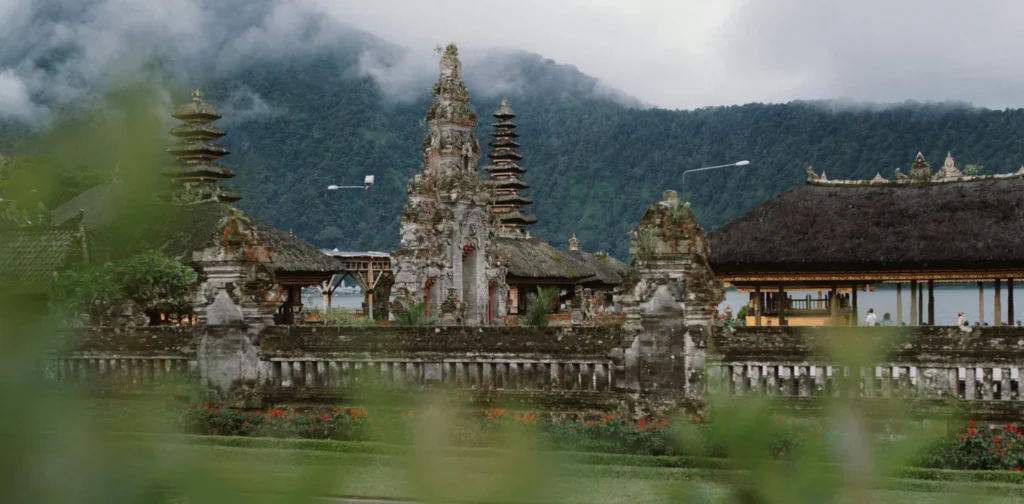Nyepi Day and Its Role in Environmental Sustainability in Bali

Photo by Lucas Tran on Pexels
Bali, known as the island of Gods, is rich with its vibrant culture and sacred traditions. One of its most sacred traditions is Nyepi, with a full day of silence and reflection. Beyond its spirituality, Nyepi Day also brings remarkable environmental benefits by giving nature a chance to rest.
Nyepi Day
Nyepi, or the Day of Silence, is a sacred Hindu celebration primarily in Bali, Indonesia, marking the Saka New Year. The word Nyepi comes from the Balinese term “sepi”, meaning silence or quiet. For 24 hours, the entire island embraces complete stillness with no travel, no work, and no electricity use. The purpose of this tradition is to maintain Tri Hita Karana, a philosophy that fosters harmony between humans and Gods, humans and each other, and humans and nature.
As one of the world’s most visited tourist destinations, Bali experiences a remarkable transformation during Nyepi. For 24 hours, Ngurah Rai International Airport stops its operations; businesses, hotels, and markets remain closed; and both tourists and residents must stay indoors. This temporary pause offers a much-needed rest for Bali, an island often overwhelmed by overtourism.
Rituals During Nyepi
Nyepi is guided by four sacred principles known as Catur Brata Penyepian, which serve as the foundation of this Day of Silence. The term Catur Brata comes from the Sanskrit words “Catur”, meaning four, and “Brata”, meaning vow or restraint. The four principles include:
- Amati Geni (No Fire): No use of fire or electricity, allowing for purification and reduces energy consumption.
- Amati Karya (No Work): A break from all physical work to focus on prayer, meditation, and self-reflection.
- Amati Lelungan (No Travel): All forms of transportation are stopped, helping to reduce pollution.
- Amati Lelanguan (No Entertainment): Avoiding entertainment to encourage introspection and mindfulness.
To ensure these principles are followed, only pecalang (traditional security officers) are allowed to patrol, making sure the sacred vows are respected across the island.
Environmental Impact of Nyepi
Nyepi brings not only spiritual significance but also profound environmental benefits. With flights stopped and vehicles off the roads, Bali experiences cleaner air. Studies show that harmful pollutants like CO, NO₂, and dust particles decrease significantly during Nyepi. Urban areas, which usually have more pollution, see the biggest improvement in air quality.
Electricity consumption in Bali also drops sharply during Nyepi. On regular days, electricity usage is around 21,121 MWh, but during Nyepi in 2019, it decreased to 13,427 MWh. This means Bali saves approximately 60% of its electricity, equivalent to reducing energy costs by 4 billion IDR (over 200,000 USD) or 290 megawatts.
Meanwhile, fuel consumption sees a major decline as transportation comes to a halt for 24 hours. While Bali aims to transition to renewable energy, it still heavily relies on fuel. On Nyepi day, the government saves around IDR 12 billion in fuel subsidies for premium fuel and diesel. Additionally, the country reduces foreign exchange spending by approximately IDR 52 billion.
LPG usage follows a similar pattern, with consumption rising by around 5% before Nyepi but then dropping by 50% on the day itself. This reduction results in total savings of 575 tons for 3 kg LPG and 92 tons for 12 kg LPG. With a 3 kg LPG subsidy of IDR 2,415 per kg, the total subsidy savings during Nyepi reach IDR 1.4 billion, while foreign exchange savings reach around IDR 5 billion.
Model for Global Sustainability
Nyepi serves as a reminder that harmony between humans and nature is achievable through collective action rooted in cultural tradition. As the world faces more environmental challenges, traditions like Nyepi offer valuable lessons that can inspire global movements toward sustainable living. One such initiative is the World Silent Day campaign onMarch 21st, which encourages people worldwide to reduce their activities for a day as a step toward combating climate change.
By pausing human activity for a single day each year, Bali demonstrates the potential for large-scale sustainability practices that benefit both people and nature. This sacred tradition allows nature to rest and recover, offering relief from the constant strain of daily human activities.
Editor: Nazalea Kusuma

Co-create positive impact for people and the planet.
Amidst today’s increasingly complex global challenges, equipping yourself, team, and communities with interdisciplinary and cross-sectoral insights on sustainability-related issues and sustainable development is no longer optional — it is a strategic necessity to stay ahead and stay relevant.


 Reframing Governance in the Era of Water Bankruptcy
Reframing Governance in the Era of Water Bankruptcy  Strengthening Resilience amid Growing Dependence on Space Infrastructure
Strengthening Resilience amid Growing Dependence on Space Infrastructure  Indian Gig Workers Push Back Against 10-Minute Delivery Service Strain
Indian Gig Workers Push Back Against 10-Minute Delivery Service Strain  Call for Governance: Grassroots Initiatives Look to Scale Efforts to Conserve Depleting Groundwater
Call for Governance: Grassroots Initiatives Look to Scale Efforts to Conserve Depleting Groundwater  Integrating Environment, Climate Change, and Sustainability Issues into Education Systems
Integrating Environment, Climate Change, and Sustainability Issues into Education Systems  Finally Enforced: Understanding the UN High Seas Treaty
Finally Enforced: Understanding the UN High Seas Treaty